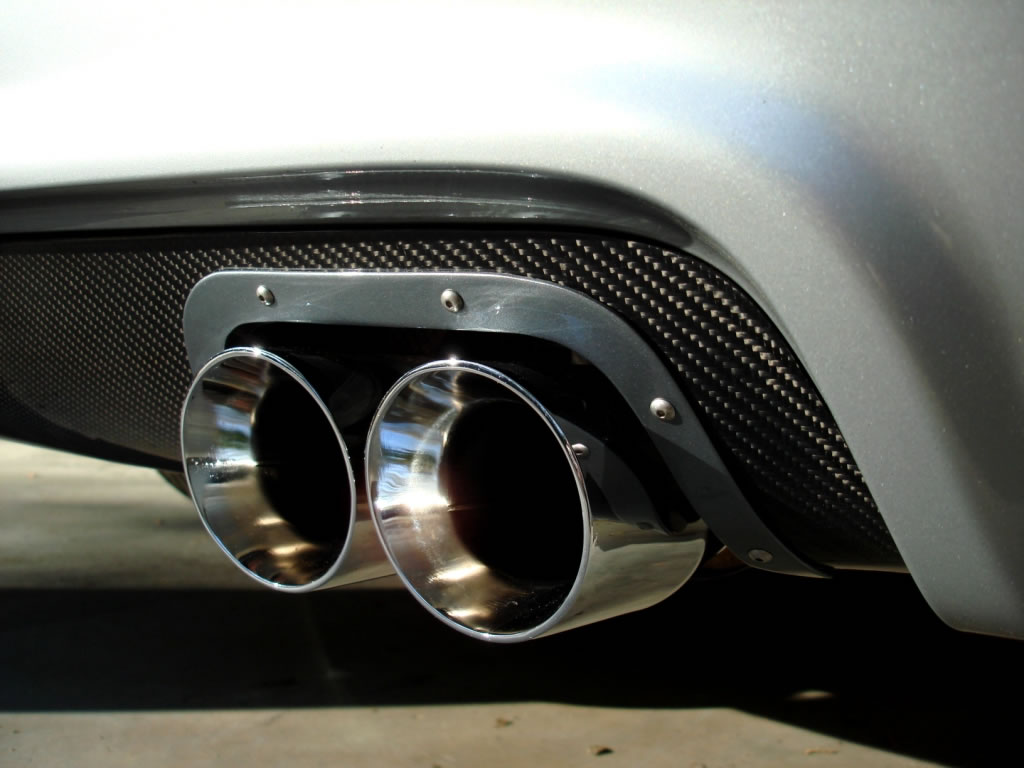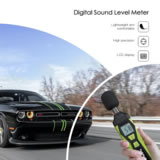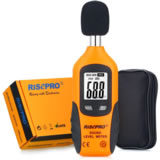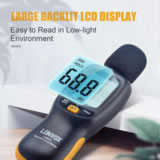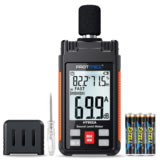California Vehicle Exhaust Noise Laws
Many car enthusiasts decide to modify their car’s exhaust system, but there are laws governing the noise limit your vehicle can legally produce. The section below outlines relevant laws and legislation pertaining to car exhaust noise laws in California.
In summary, all cars and other motor vehicles in California must be equipped with a muffler. Any exhaust modifications must not increase the exhaust noise above 95 dbA.
Full California exhaust noise laws can be found in California Vehicle Code § 27150 – 27159 – Exhaust Systems. Below we highlighted two most relevant sections.
Vehicle Code 21750. Adequate muffler required
27150. (a) Every motor vehicle subject to registration shall at all times be equipped with an adequate muffler in constant operation and properly maintained to prevent any excessive or unusual noise, and no muffler or exhaust system shall be equipped with a cutout, bypass, or similar device.
Vehicle Code 27151. Modification of exhaust systems
(a) No person shall modify the exhaust system of a motor vehicle in a manner which will amplify or increase the noise emitted by the motor of the vehicle so that the vehicle is not in compliance with the provisions of Section 27150 or exceeds the noise limits established for the type of vehicle in Article 2.5 (commencing with Section 27200). No person shall operate a motor vehicle with an exhaust system so modified.
(b) For the purposes of exhaust systems installed on motor vehicles with a manufacturer’s gross vehicle weight rating of less than 6,000 pounds, other than motorcycles, a sound level of 95 dbA or less, when tested in accordance with Society of Automotive Engineers Standard J1169 May 1998, complies with this section. Motor vehicle exhaust systems or parts thereof include, but are not limited to, nonoriginal exhaust equipment.
There are additional regulations in California Vehicle Code that pertain to exhaust noise levels:
- For example, Section 2115.3 prohibits installing “whistle-tip” or similar devices which emit a high pitched or shrieking noise when the vehicle is in operation.
- Furthermore, certain vehicles can get special exemptions from these laws while participating in an organized racing or competitive events (27150.c).
- Additionally, motorcycle exhaust noise levels depend on the year of manufacture, where motorcycles manufactured before 1970 can have up to 92 dbA, and after 1985 up to 80 dbA (full table in Section 27202 in Article 2.5 linked below).
Section 27200 of California’s Vehicle Code also establishes that measuring vehicle noise should be done at a distance of 50 feet from the centerline of travel.
More on:
- California Vehicle Code Division 12 Chapter 5 Article 2 (Exhaust Systems)
- California Vehicle Code Division 12 Chapter 5 Article 2.5 (Noise Limits)
New exhaust laws since January 2019:
Assembly Bill 1824 went into effect in January 2019. This new legislation does not make California vehicle exhaust noise laws more strict. Instead, the Bill only makes it mandatory for police officers to issue immediate tickets to offenders.
AB 1824 enables law enforcement to issue immediate fines for violating exhaust levels. Prior to 2019 police officers issued so-called “fix it” tickets, enabling you to fix your vehicle’s exhaust system within 30 days, provide proof, and avoid paying paying fines. As of 2019 fines are mandatory, and can range upwards of $1,000.
California Vehicle Exhaust Noise FAQ
Below are some frequently asked questions about California exhaust noise laws!
How do cops determine exhaust noise level?
95 dbA is the legal limit for vehicle exhaust noise in California. Police officers can “exercise their judgment” in determining if your exhaust noise is over the legal limit. Most factory-installed exhaust systems even on powerful sports cars don’t exceed 75 decibels.
Are all exhaust modifications illegal in California?
Exhaust modifications are illegal only if noise emitted is over 95 decibels. Keep in mind California smog laws or other legislation may still make your custom exhaust modifications illegal.
All vehicle exhaust systems must have mufflers. Any bypass, cutouts, and especially whistle tips are not permitted.
What happens if I get ticket for too loud exhaust?
If your vehicle exhaust is too loud, you will be ordered to take it to an official Referee Center – Bureau of Automotive Repair Smog Check Referee Program.
- First step of this process is to make your vehicle’s exhaust compliant with laws.
- Next, schedule an appointment with California Referee Center. You will need your traffic ticket, and vehicle registration information for this.
- At this point the Referee Center will conduct an exhaust noise test:
- If Referee Center’s test determines your vehicle is still not within legal noise limits, you will be required to repair it before attempting another test.
- If your vehicle is under 95 dB, you will be issued a “Certificate of Compliance”. This certificate must be presented in traffic court.
More information about this process can be found on California Bureau of Automotive Repair website (BAR). BAR does not issue preemptive compliance certificates.
There will be financial costs incurred even if your vehicle is compliant. It’s best to avoid getting a traffic ticket altogether. In case the Referee Center determines your vehicle’s exhaust noise is not over the legal limit, the court can dismiss your citation.
How much are exhaust ticket fees?
Penalties for illegal exhaust depend on type of exhaust modifications and your location. Minimum fine for a first conviction is minimum $50 to maximum $100, with a total fee of $193. Fees can climb up to $1,105 in some cases. For second and subsequent violations fine is $100-$250.
You can view exact fines and penalties for unlawful exhaust modifications in California’s Uniform Bail and Penalty Schedules (PDF document; see page 26).
Law enforcement can also order you to undergo a vehicle inspection. This can further increase your total financial penalties.
Are mufflers required in California?
California Vehicle Code 27150. (a) requires all vehicles to be equipped with a muffler at all times. If you can keep your vehicle’s exhaust noise low enough you may be able to avoid attention from police. However, if you do receive a ticket, you will be required to install a muffler before your vehicle can be compliant with California exhaust laws.
How loud is 95 decibels?
For comparison, vacuum cleaners or chainsaws operate at about 70 dB. 95 db is an approximate sound of:
- a lawn mower
- the inside of a subway car
- plane flyover at 1000 feet
- food blender less than 3 feet away
- car horn at 10 feet
You can do a quick decibel test using a phone app. Decibel X for iPhone and Sound Meter for Android are some of the more popular ones. Note: we have not reviewed these apps are are not affiliated with them in any way.
Noise meters for phones are generally not very accurate, but can be helpful in determining approximate noise levels. For accurate noise level meter you can see BAFX Decibel Meter on Amazon or similar devices. It costs $20, but it’s a small price to pay for avoiding a $1000 traffic ticket.
Please remember that state laws are subject to change, and it is important to consult the current statutes and regulations in California to ensure accurate information.
With latest California exhaust laws having mandatory fines it is best to stay within the law. Fines for illegal exhaust can be very high. Even if you’re under 95 decibels, the hassle of having your vehicle checked and having to go to traffic court is not worth it.
